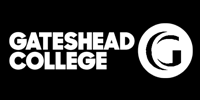Can Spotify Scale Up?
Spotify is now undoubtedly the world’s most popular streaming service, with 50m paying users worldwide. But the company is also losing money hand over fist, with latest financial filings revealing a net loss of over $600m in 2016- increasing by 134% from its 2015 loss of $257 million. At the same time, revenues grew by over 50 percent to $3.3 billion in 2016- certainly impressive, but not enough to offset huge losses.
The Gen understands the economics of Spotify playing the long game- spend on marketing, introduce new features and improve existing ones and if you build it, they will come. Reach a critical mass, overtake the competition and renegotiate with rights holders accordingly. It’s quite simply short-term loss for projected long term gain.
All of which is happening by the way- in 2016, streaming became the primary source of revenue for record labels in the US for the first time, which ultimately means increased leverage for the streaming platform.
But what is the magic number for Spotify to actually hit profitability? As explored in this article by Vice, Spotify user’s are literally “Loving it to death”, with each new user coming at an operating cost- reminiscent of the story about New Order taking a hit on every copy of Blue Monday sold due to Peter Saville’s costly sleeve design. According to the band, the label sold the single for £1 per unit, with production costs at £1.10 due to the sleeve. Such a model isn’t sustainable and begs the question- how many paying subscribers do Spotify actually need to get there? Spotify has reportedly pledged to pay Universal and Merlin’s members a total of over $2bn in the next two years. This doesn’t take into account deals still to be done with other labels and once you factor in increased marketing spend ($463m in 2016), personnel ($256m) and other operating costs, it still doesn’t stack up.
There has also been much debate about the cost of streaming services and hitting a ‘sweet spot’ lower than £9.99 a month for more casual consumers that will lead to mass adoption- but with Amazon soon to offer 4 months of its ‘Prime Unlimited’ streaming service for a desperate sounding 99p, doesn’t this devalue music further in a digital era which has already seen it greatly devalued?
Address
Coronation House, 65 Quayside, Newcastle Upon Tyne, NE1 3DE
Telephone
07955289085
Connect with Generator
© Generator 2025 - All rights reserved.
Delivered with Cargo Creative




















